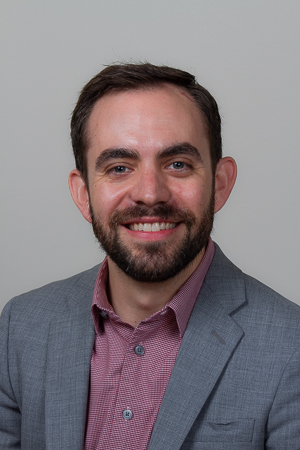Faculty Profile
Kirk Anderson
Assistant Professor of Educational Studies (2018)Contact Information
57 S College St
--
Bio
Kirk is broadly interested in how racial and economic inequities shape educational institutions. His research utilizes ethnography to explore the daily realities of diversity policy and practice in higher education, examining diversity as something institutions do rather than something people are. He is also interested in how practices ranging from student activism to mindfulness can help educational institutions recognize and challenge systemic and institutional inequities.
Education
- B.A., Texas A & M University, 2007
- M.A., University of Wisconsin-Madison, 2013
- Ph.D., 2018
2025-2026 Academic Year
Fall 2025
EDST 250 Curriculum Theory
An examination of how the curriculum of educational institutions is shaped as well as how curriculum serves as a shaping force for educational institutions. This includes an examination of various conceptions of curriculum and of knowledge as well as curriculum ideologies and structures. Finally, the course examines how diverse student populations may experience the curriculum.Prerequisites: 120 or 130, and 140.
EDST 260 Intro to Educational Rsrch
An introduction to the purposes and methodologies of research in education including how various stakeholders in the educational community use and access research findings as well as how studies in education are designed, implemented, and disseminated. Quantitative, qualitative, and historical methodologies are addressed. Research processes are introduced around the topic of literacy. Students will develop a review of the research literature on a topic related to literacy using online catalogs, databases, and other open access resources to find and gather sources and digital publications formats to disseminate their reviews. Prerequisite: 140.
EDST 310 Policies Shaping American Educ
An examination of the policies that have shaped and continue to shape American Education within the broader context of American educational reform movements. Particular policy(ies) of focus each semester will be selected by the instructor. The course might include an in-depth examination of a particular policy such as school funding. Or, it might examine several policies around a broader concept such as inclusion which could include desegregation, Individuals with Disabilities Education Act, Title IX, and policies related to English Language Learners. Prerequisites: 120 or 130, and 260 or Social Science Research Methods (AFST 200, AMST 202, ANTH 240, ANTH 241, EASN 310, ECON 228, LAWP 228, PMGT 228, POSC 239, PSYC 211, SOCI 240, SOCI 244, or WGSS 200), or permission of instructor.
Spring 2026
EDST 250 Curriculum Theory
An examination of how the curriculum of educational institutions is shaped as well as how curriculum serves as a shaping force for educational institutions. This includes an examination of various conceptions of curriculum and of knowledge as well as curriculum ideologies and structures. Finally, the course examines how diverse student populations may experience the curriculum.Prerequisites: 120 or 130, and 140.
EDST 260 Intro to Educational Rsrch
An introduction to the purposes and methodologies of research in education including how various stakeholders in the educational community use and access research findings as well as how studies in education are designed, implemented, and disseminated. Quantitative, qualitative, and historical methodologies are addressed. Research processes are introduced around the topic of literacy. Students will develop a review of the research literature on a topic related to literacy using online catalogs, databases, and other open access resources to find and gather sources and digital publications formats to disseminate their reviews. Prerequisite: 140.
EDST 470 Senior Seminar
The design and implementation of a study in an individual area of interest within the major concentration culminating in the writing of a conference paper or publishable article. Students will develop a review of the related research literature on their chosen topic using on-line catalogs, databases and other open access resources to access sources, gather data related to their topic employing quantitative, qualitative, and/or historiographic methodologies enhanced by electronic devices as appropriate, analyze their data using digital software as appropriate, write a conference paper or publishable article, electronically submit their conference proposals/articles, and disseminate their work via conference, digital, or paper publication formats. Prerequisites: 120 or 130, and 140, 250, 260, 300 or 310.
